Why Organic Is More Than Just a Trend
Why choose organic? The answer lies in three powerful benefits: reduced exposure to harmful chemicals, better nutrition, and environmental protection. Here's what organic offers:
For Your Health:
- 60% fewer pesticide residues in your body within days
- 50% more beneficial omega-3 fatty acids in organic dairy and meat
- 69% higher antioxidant levels in organic crops
- Zero routine antibiotics or growth hormones
For the Planet:
- 40-50% reduction in agricultural emissions possible by 2050
- 30% more biodiversity on organic farms
- Better soil health and carbon storage
- Protection for pollinators and wildlife
For Quality:
- No artificial colors, flavors, or preservatives
- GMO-free guarantee
- Stricter animal welfare standards
- Certified inspection processes
The organic movement isn't just about food anymore - it extends to every product we consume, including premium spirits. When you choose organic, you're voting for cleaner production methods, healthier communities, and a more sustainable future.
Two out of three Canadians now buy organic products weekly, and 83% of millennials actively seek organic options. This shift reflects growing awareness that our choices matter - not just for personal health, but for the planet we're leaving behind.
As Sylwester Skóra, founder of Two Flags Vodka, I've seen why choose organic principles matter in crafting premium spirits that honor both tradition and purity. My Polish heritage taught me that quality starts with the ingredients, which is why understanding organic benefits has shaped our approach to creating authentic, clean products.
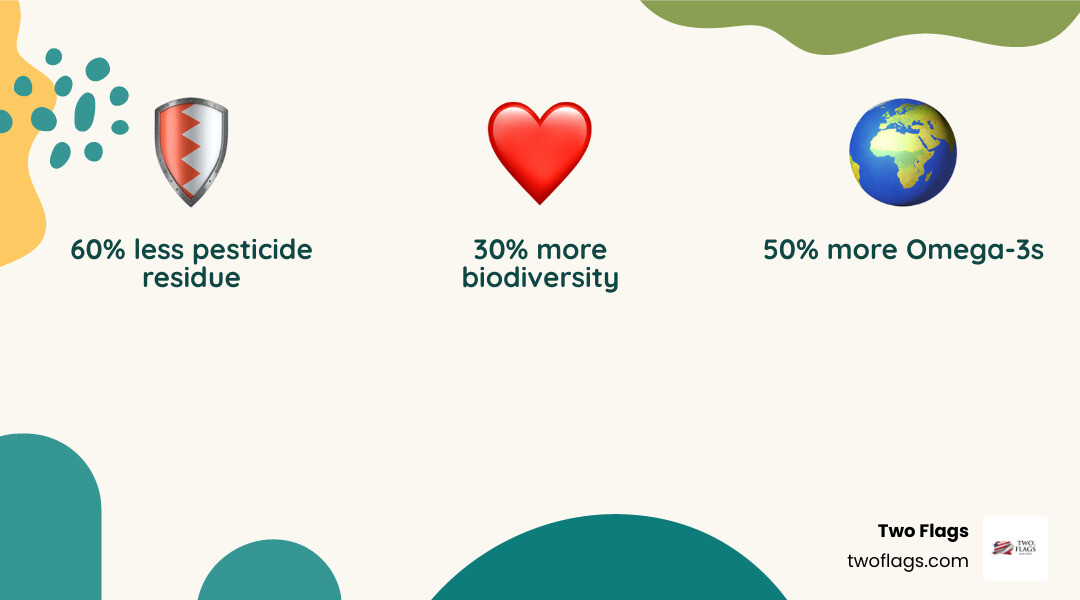
For Your Health: Reducing Your Chemical Load
Picture this: you're standing in the grocery store, holding two apples that look nearly identical. One carries invisible traces of synthetic pesticides, growth hormones, and antibiotic residues. The other is clean, pure, and free from these chemical hitchhikers. Why choose organic? Because what we put into our bodies shapes our health story, day by day, meal by meal.
The decision to go organic isn't just about avoiding the bad stuff – it's about embracing what's genuinely good for our families. When we choose organic, we're actively reducing our chemical load and giving our bodies the cleanest fuel possible. It's like choosing premium ingredients for life's most important recipe: our health.
Fewer Pesticides, More Peace of Mind
Here's something that might surprise you: switch to eating 100% organic for just six days, and your body will reduce pesticide exposure by an average of 60%. That's not months or years – that's less than a week! A European study proved this dramatic change happens faster than most people imagine.
Conventional farming relies heavily on synthetic pesticides to protect crops from bugs and diseases. While these chemicals are regulated, they leave residues on our food that we end up eating. Organophosphates – a common type of pesticide – have been linked to problems with children's brain development. No wonder 76% of Canadian families with kids buy organic products, often following advice from their doctors.
The long-term picture gets even more serious. The EPA considers 60% of herbicides, 90% of fungicides, and 30% of insecticides as potentially cancer-causing. Contact with these pesticides has been connected to stomach problems, nerve issues, breathing troubles, and hormone disruption.
But here's the encouraging news: people who eat the most organic food have the lowest rates of non-Hodgkin lymphoma and reduced overall cancer risk. Studies on pesticide reduction show that making the switch truly does offer more peace of mind – and measurable health benefits.
Are Organic Foods More Nutritious?
The age-old question finally has some solid answers, and they're pretty exciting. Organic foods don't just avoid the bad stuff – they often pack significantly more nutrition into every bite.
Take omega-3 fatty acids, those brain-boosting, heart-healthy fats we all need more of. Organic meat and milk contain about 50% more of these beneficial compounds compared to conventional versions. That's like getting a nutritional bonus with every glass of milk or bite of steak.
When it comes to fruits and vegetables, the numbers get even more impressive. Organic crops can contain up to 69% higher concentrations of antioxidants – those powerful compounds that fight aging and disease in our bodies. A massive meta-analysis on organic crop nutrition looked at over 300 studies and found organic crops had 19% higher phenolic acids, 69% higher flavanones, and 51% higher anthocyanins.
What makes this possible? It all comes down to soil health. Organic farmers spend years building rich, living soil packed with organic matter. This creates a nutrient treasure chest that plants can tap into, developing stronger roots and absorbing more vitamins, minerals, and beneficial compounds.
Think of it this way: healthy soil creates healthy plants, which create healthier food for us. We truly are what our food eats – and in the organic world, our food eats exceptionally well!
No GMOs, Artificial Additives, or Routine Antibiotics
When you choose organic, you're getting three important guarantees that conventional foods can't match: no GMOs, no artificial junk, and no routine antibiotics. These aren't just marketing points – they're fundamental health protections.
GMO prohibition is rock-solid in organic farming. Organic farmers can't plant GMO seeds, feed GMO crops to animals, or use GMO ingredients in processed foods. Since the long-term health effects of GMOs are still being debated, many families prefer to avoid them entirely. The organic label gives you that certainty.
Artificial additives are severely restricted in organic processed foods. While conventional packaged foods can contain thousands of different chemical additives, organic foods are limited to fewer than 40 approved synthetic substances. This means no artificial colors, flavors, sweeteners, or preservatives. You won't find hydrogenated fats, MSG, or aspartame hiding in organic products.
The antibiotic issue might be the most important of all. Conventional farming routinely gives antibiotics to healthy animals to make them grow faster and prevent disease in crowded conditions. This practice is creating a global crisis of antibiotic-resistant bacteria – the kind that don't respond to medicines when we actually need them.
Here's a shocking fact: globally, more antibiotics are used for animal production than for human health. The truth about antibiotic drugs in meat and dairy production581922_EN.pdf) shows just how serious this problem has become.
Organic farmers take a different approach. They only use antibiotics when an animal is actually sick and needs treatment as a last resort. By choosing organic meat and dairy, you're supporting practices that help preserve these life-saving medicines for when humans truly need them. It's a choice that protects both your family's health and global public health.
For the Planet: How Organic Farming Nurtures the Earth
When you walk through a thriving organic farm, you can actually feel the difference. The soil feels richer underfoot, the air seems cleaner, and there's a symphony of bird songs and buzzing insects that tells you life is flourishing here. This vibrant scene perfectly captures why choose organic extends far beyond our personal health—it's about nurturing the very planet that sustains us all.
Our Earth is facing unprecedented challenges from climate change to biodiversity loss, and conventional industrial agriculture plays a significant role in these problems. Chemical-intensive farming depletes our soils, pollutes waterways, and creates barren landscapes where wildlife struggles to survive. But organic farming offers a different path—one that works with nature instead of against it.
Think of organic farming as nature's original recipe for sustainable agriculture. It's an approach that recognizes something beautiful: when we take care of the Earth, it takes care of us right back. Every organic purchase you make is essentially a vote for cleaner air, healthier soil, and thriving ecosystems that our children will inherit.
Building Healthy, Carbon-Rich Soil
Here's something that might surprise you: the ground beneath our feet holds the key to fighting climate change. Healthy soil is one of our planet's most powerful carbon storage systems, and organic farming is like giving that system a boost.
While conventional farming often treats soil like dirt (literally!), organic farmers understand that soil is actually a living, breathing ecosystem. They feed it with compost, natural manures, and cover crops—think of it as a nutritious meal for billions of tiny soil creatures. These microscopic helpers work tirelessly to create rich, dark soil that's absolutely packed with life.
The climate benefits are remarkable. Organic farmland stores an average of 3.5 extra tonnes of carbon per hectare compared to conventional farms. To put that in perspective, the world's soils currently hold 2,500 billion tonnes of carbon—that's more than all plants and our atmosphere combined! When we choose organic, we're supporting farming methods that could potentially sequester more than 100% of current annual CO2 emissions through regenerative practices.
But here's where conventional farming goes wrong. Those synthetic nitrogen fertilizers that industrial farms rely on? They're greenhouse gas factories. They release nitrous oxide, which is 300 times more potent than carbon dioxide. Plus, up to 40% of these chemicals end up contaminating our groundwater and creating dead zones in our oceans—like that massive lifeless area in the Gulf of Mexico.
Organic farmers also refuse to use sewage sludge as fertilizer, which means no heavy metals or industrial contaminants sneaking into our food system. It's farming that honors the ancient wisdom of crop rotation and cover crops, building soil health naturally while storing carbon for the long haul. As research on Regenerative Organic Agriculture and Climate Change shows, this isn't just good farming—it's climate action in every field.
Protecting Waterways and Wildlife
Imagine if every farm was a sanctuary for wildlife. That's essentially what organic farming creates, and it's another compelling reason why choose organic matters so much for our planet's future.
Conventional farms often create what scientists call "food deserts" for wildlife—vast monocultures where beneficial insects, birds, and other creatures simply can't survive. The heavy use of synthetic pesticides doesn't just kill target pests; it wipes out entire food webs. Meanwhile, chemical runoff creates toxic cocktails in our rivers and lakes, contaminating drinking water for millions of people. The EPA has found pesticide contamination in groundwater across 38 states, affecting the primary water source for over half of Americans.
Organic farms tell a completely different story. They're like biodiversity hotspots in our agricultural landscape, supporting 30% more species diversity overall. Plant, insect, and bird life is 50% more abundant on organic farms, creating vibrant ecosystems where nature can truly flourish.
The difference is especially dramatic for our precious pollinators. Three-quarters of our food crops depend on bees and other pollinators, yet these vital creatures are disappearing at alarming rates. Organic farms provide a lifeline, supporting 75% more wild bees than conventional operations. For every 10% increase in bee-friendly habitats on organic farms, bee numbers and diversity jump by over a third.
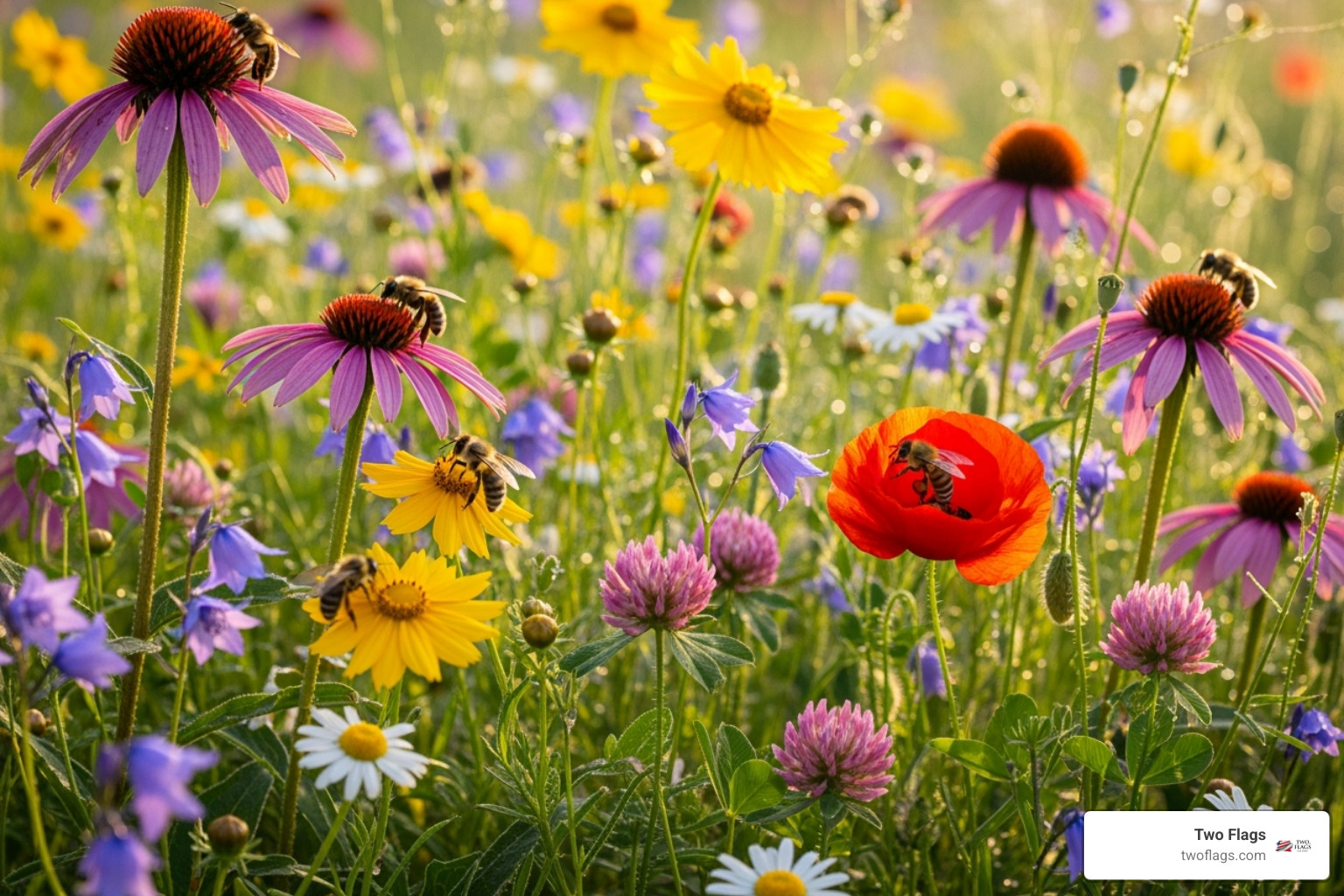
What makes organic farms so wildlife-friendly? It's all about creating diverse habitats. Organic farmers plant wildflower margins, establish beetle banks (strips of land where beneficial insects can thrive), dig ponds, and plant trees around their fields. These practices create natural pest control systems where birds, beetles, and other predators keep harmful insects in check—no chemicals needed.
The result is a beautiful example of natural pest control in action, where every creature has a role to play in maintaining balance. When you choose organic, you're supporting this intricate web of life that makes our planet more resilient and beautiful.
Why choose organic for animal welfare?
The way we treat animals in agriculture reflects our values as a society. When people ask why choose organic, the answer often includes a deep commitment to animal welfare that goes far beyond conventional farming standards.
Picture this: organic livestock living as nature intended, with year-round access to pastures, plenty of space to roam, and the freedom to express their natural behaviors. Cows can graze in open fields, chickens can scratch in the dirt, and pigs can root around outdoors. This isn't just nice for the animals—it creates healthier, less stressed livestock that produce better quality meat and dairy.
The contrast with conventional farming is stark. Many conventional operations confine animals indoors their entire lives, often in crowded conditions that require routine antibiotics just to prevent disease outbreaks. These cramped environments cause stress and suffering that no living creature should endure.
Organic standards take a firm stance against these practices. No routine antibiotics or growth hormones are allowed—ever. If an organic animal gets sick, antibiotics can only be used as a last resort, and there are strict withdrawal periods to ensure no residues remain in the final product. No growth hormones means animals develop at their natural pace without artificial manipulation.
The benefits extend beyond animal welfare. By eliminating routine antibiotic use, organic farming helps preserve these life-saving medicines for when humans truly need them. It's a approach that recognizes the connection between animal health, human health, and environmental health.
When you choose organic meat and dairy, you're supporting farmers who provide their animals with ample space, clean bedding, fresh water, shelter, and sunlight—the basic necessities for a good life. You're voting for a food system that values compassion alongside productivity, ensuring that the animals providing our food live with dignity and respect.
Why Choose Organic? Understanding the Label and the Cost
Standing in the grocery store, staring at two nearly identical products with very different price tags, you might wonder what makes that organic label worth the extra cost. It's a fair question, and one that deserves a thoughtful answer. Understanding what "certified organic" truly means—and why it costs more—reveals the real value behind your purchase decision. This is where why choose organic becomes less about marketing and more about making informed choices that align with your values.
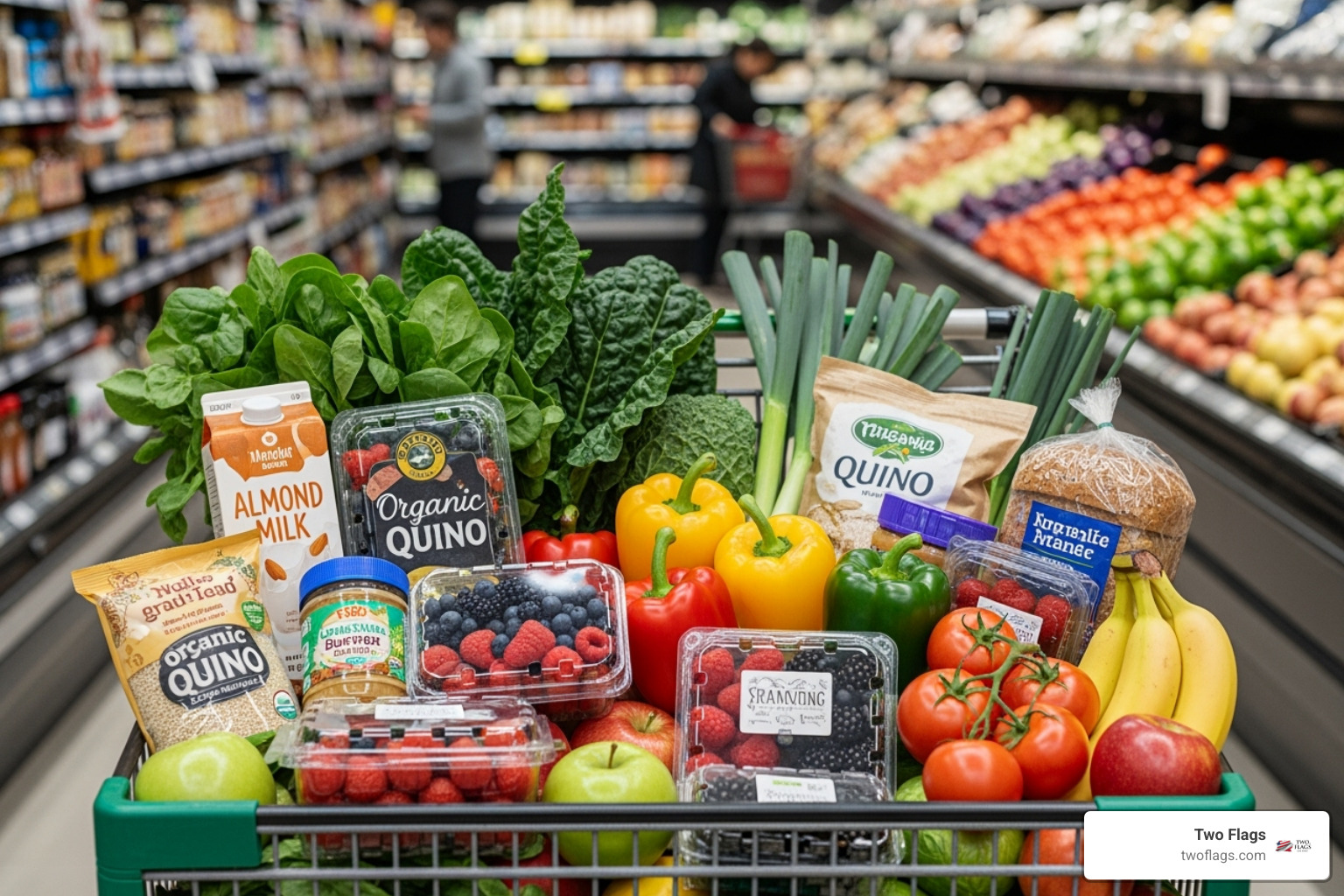
What Does "Certified Organic" Really Mean?
When you see that little organic seal, you're looking at one of the most regulated food systems in North America. This isn't just a feel-good label slapped on packaging—it's a guarantee backed by strict standards and serious oversight.
To earn the USDA Organic seal in the United States or the Canada Organic logo, products must contain 95% to 100% certified organic ingredients. Products with 70% to 95% organic content can say "Made with Organic Ingredients" but can't use the official seal. It's a clear system that helps you know exactly what you're getting.
The regulatory standards are comprehensive and cover every step from farm to table. Prohibited methods include genetic engineering, synthetic fertilizers and pesticides, sewage sludge, and irradiation. For animals, growth hormones and routine antibiotics are strictly forbidden. These aren't suggestions—they're non-negotiable requirements.
What makes this system trustworthy is the rigorous inspection process. Every organic producer and processor undergoes annual third-party certification inspections. Independent inspectors verify that farms and facilities meet all organic standards. It's like having a quality control system that works year-round to protect the integrity of what you're buying.
This level of oversight means that when you choose organic, you're not just trusting a company's word—you're relying on a verified system that takes its promises seriously.
Why choose organic despite the higher price?
Let's be honest about the elephant in the room: organic food costs more at checkout. This price difference is real, and it matters to family budgets. But here's what that higher price actually represents—and why it might be one of the smartest investments you can make.
Think of organic pricing as the true cost of food production. Conventional agriculture benefits from hidden subsidies that don't appear on price tags. The environmental costs of conventional farming—like cleaning up contaminated water, restoring damaged soil, and addressing climate change—are paid by all of us through taxes and environmental damage. Topsoil loss alone costs the U.S. $40 billion annually, much of it from intensive conventional practices.
Organic farmers, meanwhile, are doing the harder work of supporting sustainable farming. They use more labor-intensive methods, invest in soil health, and often accept lower yields to maintain environmental standards. They're paying fair wages and using higher-quality inputs like organic feed and natural pest control methods.
When you buy organic, you're making an investment in health that extends beyond your family. You're supporting farmers who prioritize animal welfare, protect water quality, and build biodiversity. You're contributing to farmer livelihood in a way that encourages sustainable practices rather than short-term profit maximization.
The long-term value becomes clearer when you consider what you're avoiding: pesticide residues, antibiotic resistance, environmental degradation, and the hidden healthcare costs that come with conventional agriculture's externalities. You're also often getting better flavor from heirloom varieties and nutrient-dense foods grown in healthy soil.
Yes, organic costs more upfront. But it's an honest price that reflects the true cost of responsible food production—and the long-term benefits for your health, your community, and the planet make it a worthwhile investment.
Conclusion
We've journeyed through the compelling landscape of organic choices, and the answer to why choose organic becomes beautifully clear when we see the bigger picture. From the moment we reduce harmful chemicals entering our bodies to the long-term impact on our planet's health, every organic choice creates ripples of positive change.
When you choose organic, you're making a powerful statement about what matters to you. You're saying yes to reducing your chemical load by cutting pesticide exposure by up to 60% within days. You're embracing foods that can contain 50% more beneficial omega-3s and 69% higher antioxidant levels, giving your body the nutrition it craves and deserves.
But it goes beyond personal health. Your organic choices support farming practices that build carbon-rich soil, protect precious waterways, and create havens for wildlife. With 30% more biodiversity on organic farms and 75% more wild bees, you're literally helping preserve the pollinators our food system depends on. You're voting for a world where animals are treated with dignity, living as nature intended rather than confined in industrial systems.
The organic certification process ensures you can trust what you're buying. When you see that official seal, you know you're getting products free from GMOs, artificial additives, and the routine antibiotics that contribute to global health challenges. It's transparency you can count on.
This commitment to purity and conscious choices extends far beyond the produce aisle. At Two Flags, we've acceptd these same values in crafting our ultra-premium vodka. Just as you might choose organic grains for your morning cereal, we choose organic ingredients for our spirits. Our Polish heritage taught us that quality starts with what goes into the bottle, and our organic, gluten-free vodka reflects that dedication to clean, authentic production.
Why choose organic? Because every choice is a vote for the world you want to live in. Whether you're selecting vegetables for tonight's dinner or choosing a premium spirit for a special celebration, understanding the story behind your products empowers you to make decisions that align with your values.
Your organic choices today are investments in tomorrow - in your family's health, in thriving ecosystems, and in supporting farmers who work in harmony with nature rather than against it. It's conscious consumerism at its finest, creating a ripple effect that extends far beyond your shopping cart.
To continue exploring premium, organic options across all aspects of your lifestyle, find more about premium, organic options in our guide to vodka. Because making informed choices - whether for your pantry or your bar - is how we build a healthier, more sustainable future for generations to come.


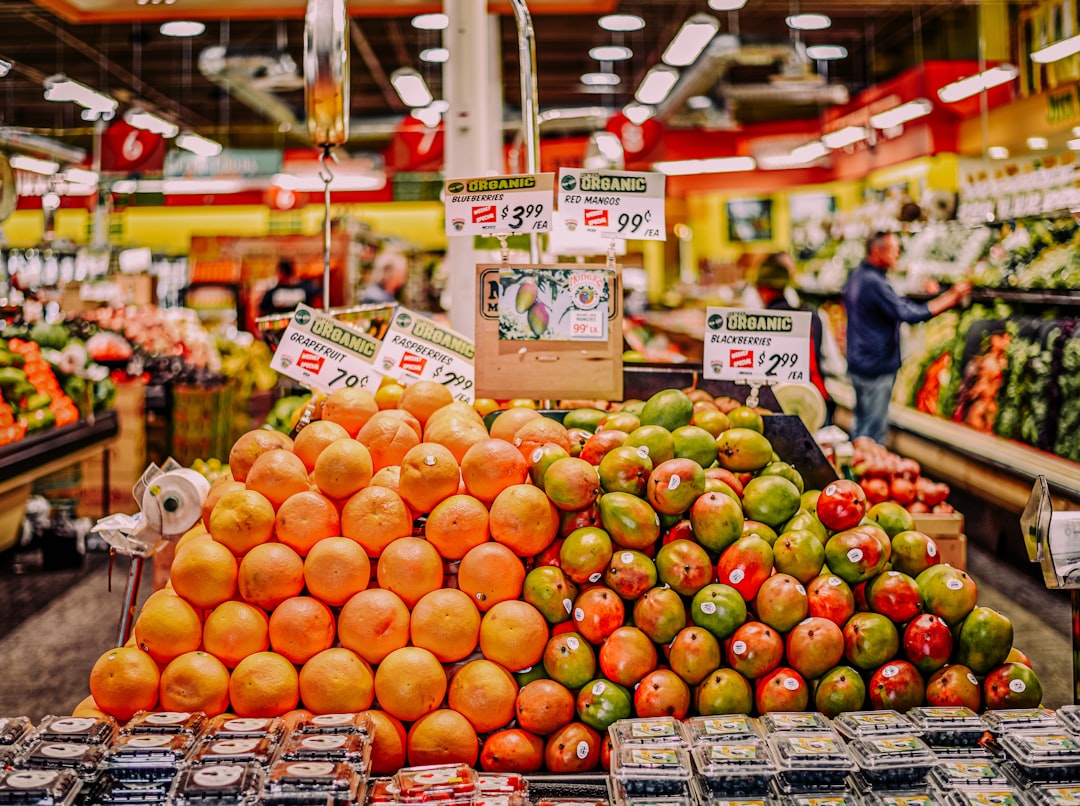


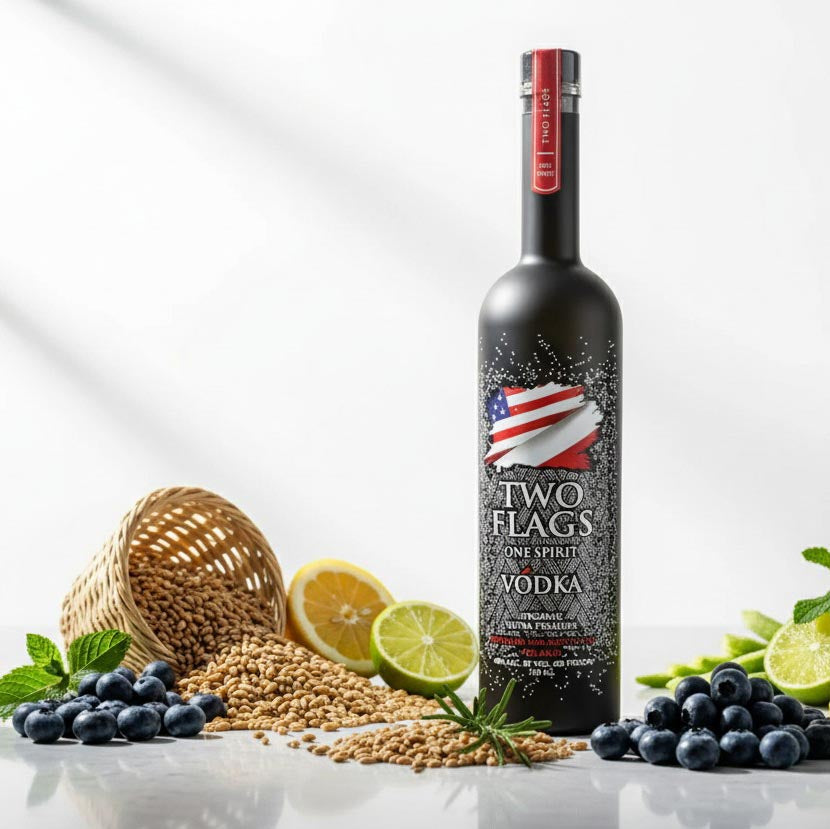


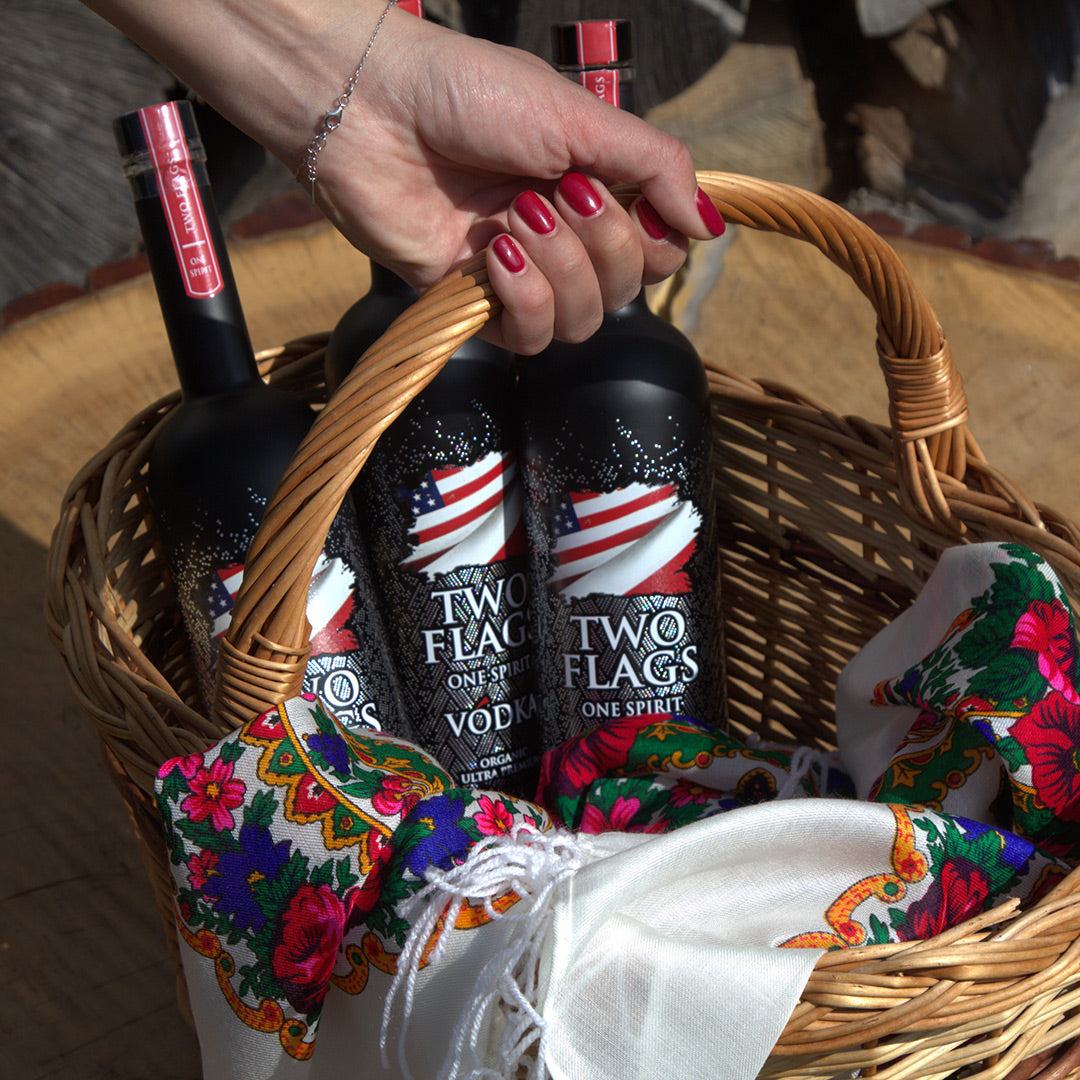
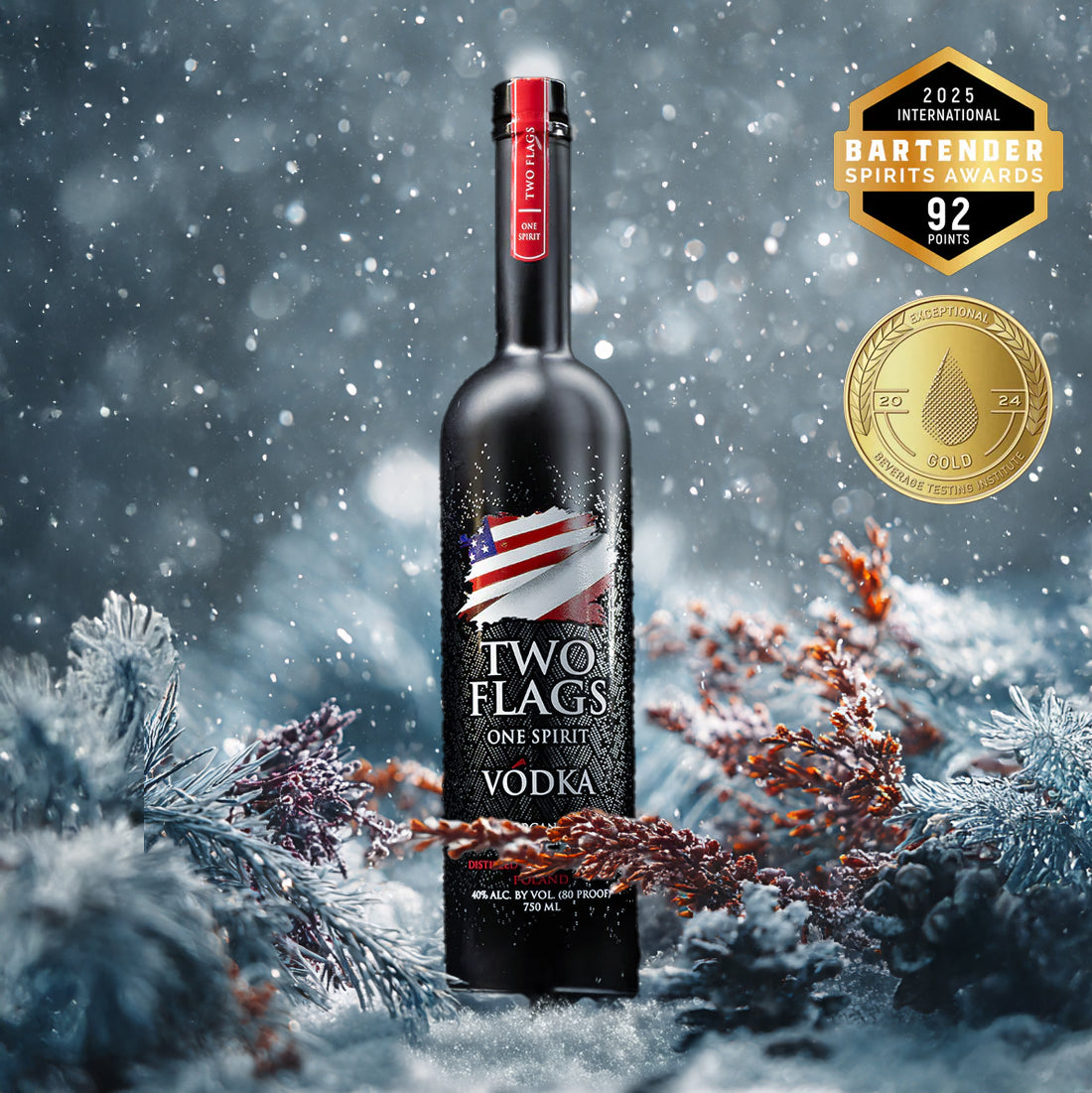

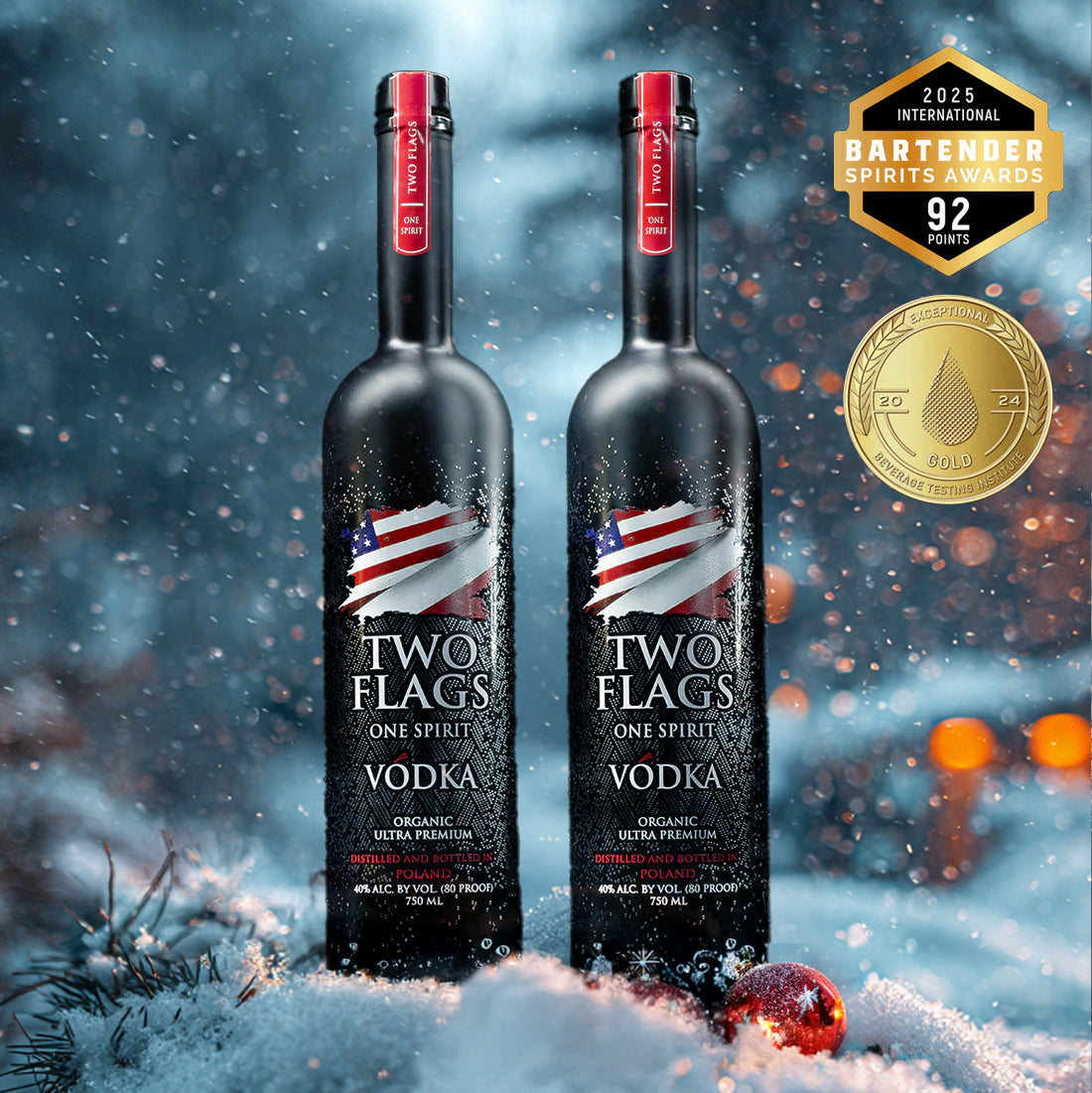

Leave a comment
This site is protected by hCaptcha and the hCaptcha Privacy Policy and Terms of Service apply.